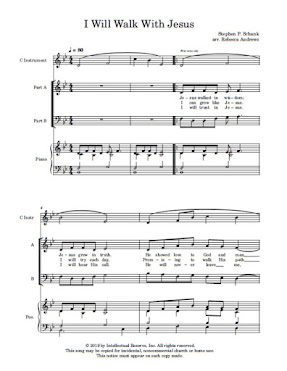In Mosiah Chapter 4, King Benjamin has just finished speaking to his people when they "viewed themselves in their own carnal state, even less than the dust of the earth." After they had learned about the atonement of Jesus Christ, an overwhelming feeling of worthlessness filled the people's hearts. King Benjamin responded to them by encouraging their sense of their nothingness.
Hundreds of years before this, Moses had a similar experience. In Moses 1 he says, "I know that man is nothing, which thing I never had supposed." The irony of this statement is that Moses had just been in the presence of God, who had proclaimed to him, "behold, thou art my son... I have a work for thee, Moses, my son; and thou art in the similitude of mine Only Begotten". How did Moses' thought process go from "You are my son" to "I am nothing"? How did the King Benjamin's people go from learning of the atonement of Jesus Christ to feeling as if they
It is as if learning of the beauty of the Love of God (which is the atonement of Jesus Christ - see 1 Nephi 11) stirs in man's heart an awareness of their nothingness and insignificance in the eternal plan - or rather, that the glorious truth that "the worth of a soul is great in the sight of God" stirs that very soul to the greatest depths of humility.
There is so much beauty in opposition, in contrast, and in juxtaposition. Indeed, the gospel requires a complement of seemingly opposing truths - justice and mercy, nothingness and infinite worth, dark and light. Jacob's discourse in 2 Nephi 2 eloquently describes this necessary opposition.
For it must needs be, that there is an opposition in all things. If not so... righteousness could not be brought to pass, neither wickedness, neither holiness nor misery, neither good nor bad. Wherefore, all things must needs be a compound in one; wherefore, if it should be one body it must needs remain as dead, having no life neither death, nor corruption nor incorruption, happiness nor misery, neither sense nor insensibility.
In King Benjamin's discourse, he goes on to testify to the people that their feelings of nothingness were the key to salvation - but not just those feelings on their own. He testified that a person also needs a knowledge of the goodness of God, and also the atonement, and needs to put his trust in the Lord. Then "this is the man who receiveth salvation, through the atonement which was prepared form the foundation of the world for all mankind... and this is the means whereby salvation cometh."
What a beautiful illustration of the "compound in one" spoken of by Jacob in the Book of Mormon. We are everything to God, indeed, we are His children and the very reason for the existence of the atonement. And yet, we are less than the dust of the earth - we are so small and insignificant, which makes the magnitude of the atonement even more glorious.
Oh it is wonderful, that He would care for me enough to die for me. Oh it is wonderful, wonderful to me.
What do you think about the contrast between the humility of feeling the nothingness of man compared to the glory of the atonement, which is everything for us? Are there other places where you have experienced the "compound in one"?





